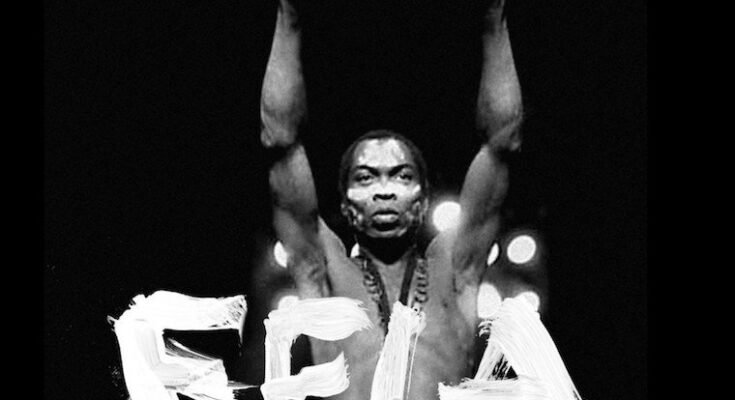Several Marketing books and journals advise how to build your personal brand. It is unlikely that Fela read any of them. Indeed, the inimitable and iconoclastic Fela Anikulapo-Kuti was so unique and set in his ways that he cannot realistically serve as anyone’s role model in brand effort. Yet he was unquestionably a brand icon and there are lessons to be learned. Here are ten top factors that explain his iconic status:
- Start Early: Fela knew and understood his strengths early on in life and did not waste his talents in chasing the wild goose. He honed his skills and perfected his art in the process of training. National and international recognition followed his dexterity in his music.
- Get help: In addition to his musical artistry, Fela benefitted from his long-term professional relationship with Producer and Maestro, Benson Idonijie and Saxophonist and Band leader, Baba Ani (Lekan Animashaun), amongst several others. While Benson Idonijie – the critic, cultural gatekeeper, and first manager – gave Afrobeat credibility and structure in its formative years, Baba Ani – the loyal saxophonist, band leader, and arranger – ensured Afrobeat’s complex sound held together on stage and lived on after Fela.
- Dare to be Different: Fela didn’t just play music – he invented Afrobeat, blending jazz, highlife, funk, and Yoruba rhythms. This was differentiation at its finest: Afrobeat became his “brand product,” instantly recognizable and owned by him. Fela owned his own uniqueness – Afrobeat was his intellectual property.
- Be Authentic: His brand was built on Pan-Africanism, resistance, and truth to power. Through songs like Zombie and Coffin for Head of State, Fela became avoice of the oppressed. Even with great personal discomfort, Fela’s refusal to compromise gave him authenticity – the core of brand trust. There were no pretenses: his Art and his Choices aligned.
- Be Visible; Be Bold: All memorable brands have their unique visual trademarks. Fela understood brand image and how to build it with his fans. His “Kalakuta Republic” was both a home and a statement of independence. His fashion – Ankara prints, beads, half-open shirts – became visual brand assets. His fearlessness against government oppression cemented him as a counter-cultural icon.
- Crown Yourself: Fela’s life was the brand, and despite the many controversies and Police harassments, he crowned himself “The King of Afrobeat Music”. The moniker stuck. He was not just a singer, but a fighter – for the people and a prophet, in a manner of speaking.
- Build a Tribe – a Cult Community: Movements outlast personalities. Fela turned his audience into a movement, not just fans. His shrine wasn’t just another nightclub – it was a community temple. He gave followers a sense of identity, pride, and rebellion. That made his brand sticky and enduring.
- Leverage Controversy: Fela converted adversity into brand equity. Fela understood that on the flip side of adversity is opportunity; that attention amounted to currency! Government crackdowns, arrests, and public clashes helped amplify his brand. He transformed persecution into free publicity, reinforcing his “fearless rebel” positioning.
- Be Vulnerable: We cannot relate to icons without imperfections. Fela was eccentric, mysterious and quirky. For all his professional excellence he was also flawed in several respects. The women, the Marijuana and such stuff did not appear to be excellent examples for younger followers and Shrine devotees. But they inevitably enhanced the Fela brand.
- Go Global: Fela transcended Music to become a Cultural reference point. His Music went beyond national boundaries. Today, Afrobeat is global – from Burna Boy to Beyoncé sampling it. Fela’s image (raised fist, saxophone, defiance) has become visual shorthand for rebellion and African pride. His legacy lives in festivals, fashion, murals, and political commentary.
Fela Anikulapo-Kuti became a brand icon because he fused art, activism, and authenticity into a timeless cultural movement that outlived him. Not because he was a Marketing expert; but because he was a natural genius who deeply believed in what he was doing.
Ken Ihedioha is a Sales and Marketing veteran. He writes from Lagos.
![]()



